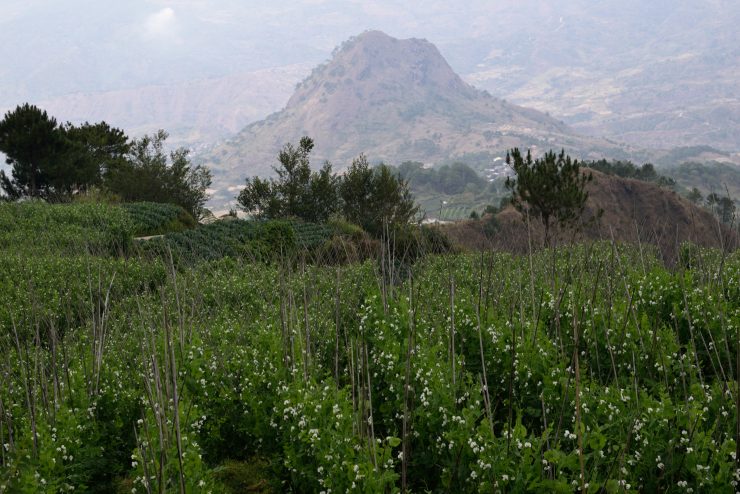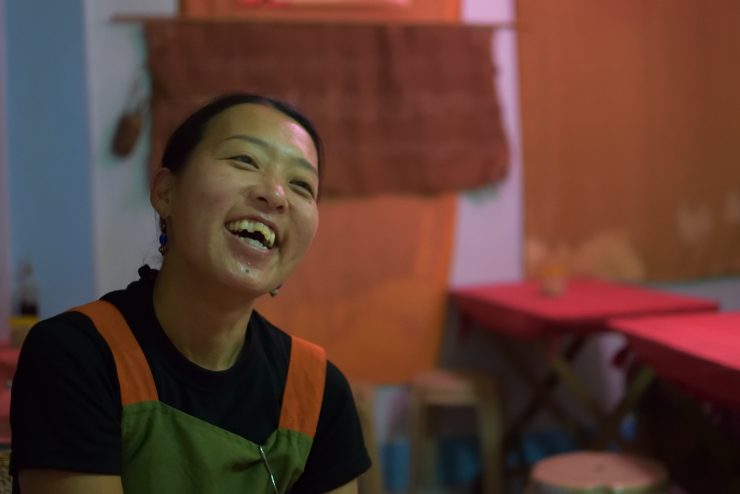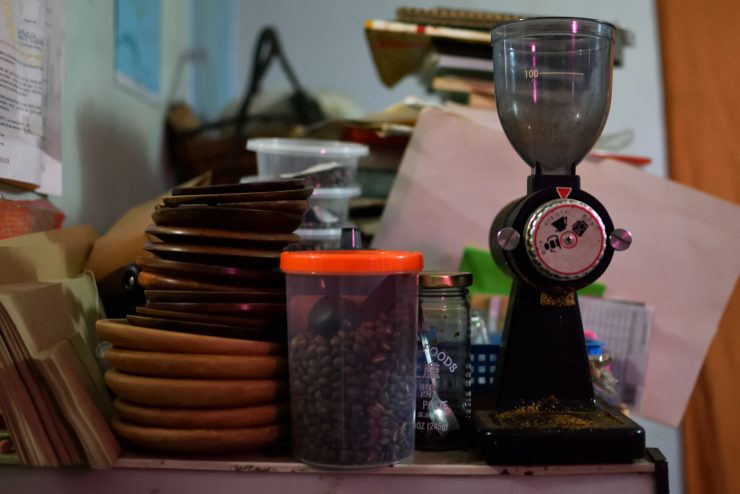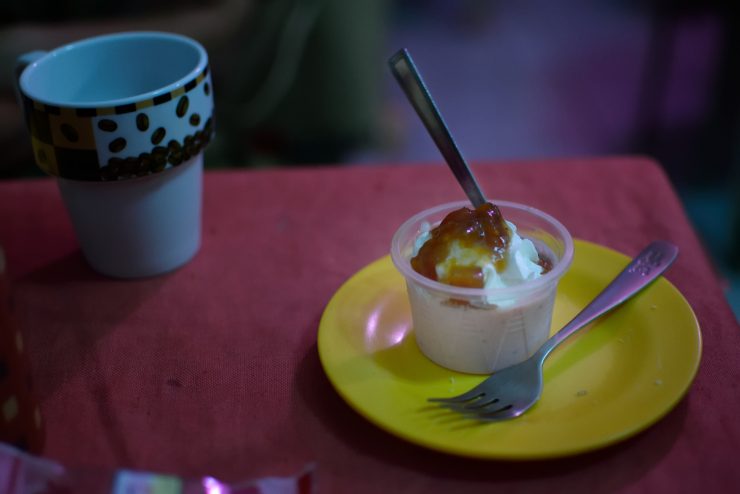
Nested in an alley adjoining La Trinidad’s central market is the Philippines’ hidden coffee gem, Kape Bantay. My introduction to the cafe was through a friend, seemingly the only way one would happen upon this cafe. Sequestered up steep flights of stairs, in an alley past the permanent fixture of a grinning woman selling roast fish, Kape Bantay is both a well-kept secret and a hidden sanctuary from the buzzing hive of La Trinidad.
Masako Okada (known to friends as “Maccha”) is herself a busy bee. Single-handedly running Kape Bantay keeps her occupied since she is the cook, roaster, barista, baker, confectioner, and waitstaff—no simple task as the cafe’s five tables fill quickly as soon as she opens. Though Kape Bantay opens late morning and closes around 7 p.m., Okada stays late to bake bread and prepare for the next day, and comes back a scant few hours later to finish preparations. Weekends are Maccha’s time to find supplies for the coming weeks. Having a grasp on all aspects of the cafe allows her to make everything affordable at the local market.

All of the coffees served here fall solidly into the realm of “relationship coffee,” as Maccha goes straight to the source on her weekends during the harvest season to acquire coffee. Since she spends so much time in the areas surrounding La Trinidad (sometimes as far as five hours north in Mountain Province), she has made a good many friends among the producing communities. Naturally, some of these friends pay visits to her cafe when they find themselves in the city, and Maccha has the opportunity to brew coffee for the very people who grow it. After some time, their discussions have become deeper, and Maccha has gotten involved in various groups involved in social responsibility and agriculture in the Cordilleras, such as Cordillera Green Network, Benguet State University, and the Tublay Organic Farming Practitioner’s Association.
The Philippines is known for its people’s sunny dispositions and sunnier days, but not everything is idyllic here in the Cordilleras. Many people are tied to their crops—cabbage, beans, sugarcane, chayote—and are dependent on the steady income that these heavily fertilized crops provide. What’s more, their intensive agricultural practices provide the perfect habitat for pests, and farmers become reliant on pesticides or inorganic fertilizer. Subsequently, the costs of production nearly outweigh the profits, and farmers tied into this system can become destitute if there is even a small mishap. The highly sought after goal of a “jackpot price” when market conditions are just right is the only glow on the horizon for many of these farmers.

Maccha works with local producers to provide alternate methods of income as a foil to this system. Coffee, though only harvested once a year, can provide more economic flexibility to farmers that generally earn smaller (albeit more frequent) dividends from other cash crops. This is due to the relatively higher price that coffee captures on the local and international market. Profits from coffee have traditionally been treated as extra and unexpected in the Cordilleras, but some organizations are giving coffee-focused agricultural training to make the harvest more reliable.
Aside from coffee and tea, Kape Bantay carries a variety of different products made by people from the surrounding communities. Locally made muscovado sugar, vinegar, woven goods, hand-dyed fabrics, and many other handicrafts adorn the shelf, alongside flyers for local events and workshops.

Her menu is as diverse as the selection on her shelves. My friend and I sampled a number of items: a simple green salad dressed with a vinaigrette made of coffee cherry vinegar, curry fried rice, a strawberry parfait made with locally grown strawberries and rhubarb, and a coffee-blossom tea to finish everything off. My personal favorite was the strawberry parfait, which comes as no surprise since La Trinidad holds the record for largest strawberry shortcake ever made.
In a form true to cafes everywhere, Kape Bantay is a community center and third place. During my visits there, I saw people from many walks of life chatting over a simple repast. People come here for a bite to eat, but they also come here for discussion over a fine cup of coffee. Even during the cold nights here in the mountains, the feeling at Kape Bantay is always warm.
Kape Bantay is located at Pico Road, La Trinidad, Philippines.
Evan Gilman is an American coffee professional and journalist focused on coffee production. Read more Evan Gilman on Sprudge.
The post Organic Cafe Kape Bantay Is A Local’s Paradise In La Trinidad, Philippines appeared first on Sprudge.

